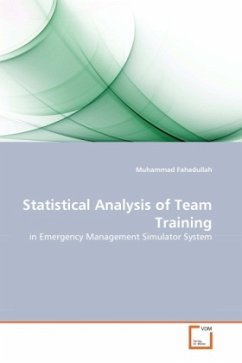
VIRTUAL TEAM EFFICACY IN INFORMATION SYSTEMS PROJECT MANAGEMENT TEAMS
TESTING THE INFLUENCE OF COLLECTIVE EFFICACY BELIEFS ON GROUP LEVEL PERFORMANCE METRICS
Versandkostenfrei!
Versandfertig in 6-10 Tagen
45,99 €
inkl. MwSt.

PAYBACK Punkte
23 °P sammeln!
As the utilization of virtual teams by organizations increases, so does the need to better understand their mechanisms and ultimate performance. While numerous theoretical frameworks have been employed by researchers interested in the performance of virtual teams, one framework that shows particular promise is social cognitive theory (SCT). The triadic reciprocal relationship of the person, the environment, and the behavior provides a theoretical framework broad enough to encompass many of the previously established virtual team success factors, allowing for the development of a more comprehen...
As the utilization of virtual teams by organizations increases, so does the need to better understand their mechanisms and ultimate performance. While numerous theoretical frameworks have been employed by researchers interested in the performance of virtual teams, one framework that shows particular promise is social cognitive theory (SCT). The triadic reciprocal relationship of the person, the environment, and the behavior provides a theoretical framework broad enough to encompass many of the previously established virtual team success factors, allowing for the development of a more comprehensive model of virtual team performance. Central to the person component of the SCT framework is the concept of collective efficacy or a belief in a team's collective abilities which can be used as a centerpiece in models of virtual team performance. In this research, a measure of virtual team efficacy is validated using established psychometric and instrument validation procedures. A conceptual model is then proposed relating virtual team efficacy to factors known to influence virtual team performance.












